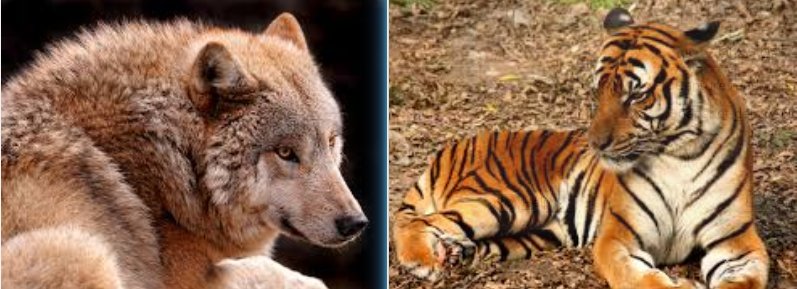Save forests, not tigers or wolves

(just some rambling I wrote in March 2005 and found today, while reordering old files)
We don’t need to preserve forests to save tigers. It’s the other way around.
Many environmental campaigns focus on big animals that could play a lead role in a Disney flick to get more funding, because they work well for the general public: nobody wants to identify with, or pay for, those minuscule Humpty-dumptied Scarlet Twitknacks. Big animals that don’t roam in swarms of millions like mosquitoes are quick to count and the corresponding numbers are so little that they’re easier to grasp for many, giving a simple, tangible measure that something good or bad is happening.
However, THE reason to protect big animals may be, and this should always be clear in any related communication, that they need a vast, pristine area to survive… just like us. And I mean survive as in “living a worthwhile life”; not as in “I’m still alive, even if I wish I weren’t”.
Maybe the whole population of Earth could feed itself with just as much land as Texas. And maybe the cultivable land of the whole planet could sustain five or whatever number many more humans than are alive today. So? I find it impossible to believe that life in a world as crowded as Manhattan everywhere, all the time, would be at all gratifying. Come on, even Linus van Pelt admitted it: we love humanity, it’s people we can’t stand. We humans badly need big, lonely, really quiet places where it is possible to see lots of stars and be alone for a while. Even if for limited periods of time, and taking turns, people need outdoors to recharge and (spiritually) grow.
Big animals disappear when their habitat, as a whole, is destroyed. They are excellent environmental gauges. I read on a plate at the Wolf Museum in Civitella Alfedena (but I forgot who said it, sorry) that an environment able to produce a wolf is a really healthy environment. A perfect one. That must be the goal.
In other words, wolves are wonderful animals, but I don’t want to preserve wild forests to save them. If wolves or tigers mattered by themselves, zoos would be enough. They are (or must become) only pretexts to check that the whole areas they live in are still in good shape, so we can enjoy them. Because that’s what we need, the whole Garden of Eden. A point of view, by the way, which besides being much more mature than any totem-like enthusiasm, is also much more acceptable for religious minds, that is much easier to share.
I might still join the next wolf- or tiger-centered campaign. But only because, if it does succeed, it will have been forced to save some wilderness in the process. A big chunk of it, actually. If, when I go into those woods later, I don’t ever meet a wolf, no big deal. It’s the wilderness I really wanted. Let’s not miss the forest for the trees er, I mean wolves.
One immediate consequence of all this is that people who care for quality of life need to pass to a pacific attack. To expansionism. Preserving the natural resources and environments that still exist is not enough anymore. It’s idiot to keep playing defense. In order to lead a decent life, and also, why not, to make money without bothering too many other people, it’s time to “create”, that is not just preserve but expand, new “pristine” woods, prairies, wetlands and so on.
TO make this happen we must also stop to run away. Saying “this place stinks, I’ll go play somewhere else” is a luxury (and limit) that only children can afford. It is not responsible adult behavior. We have to stop the drive to single family homes, to the suburbs, to the second and third homes inhabited only a few weeks a year for summer vacations and some extra weekend. Above all, let’s stop moving the whole circus around for a while. If our cities stink, as they often do, we must make them decent places, instead of running 30 Kms away at every generation to ruin some other area.